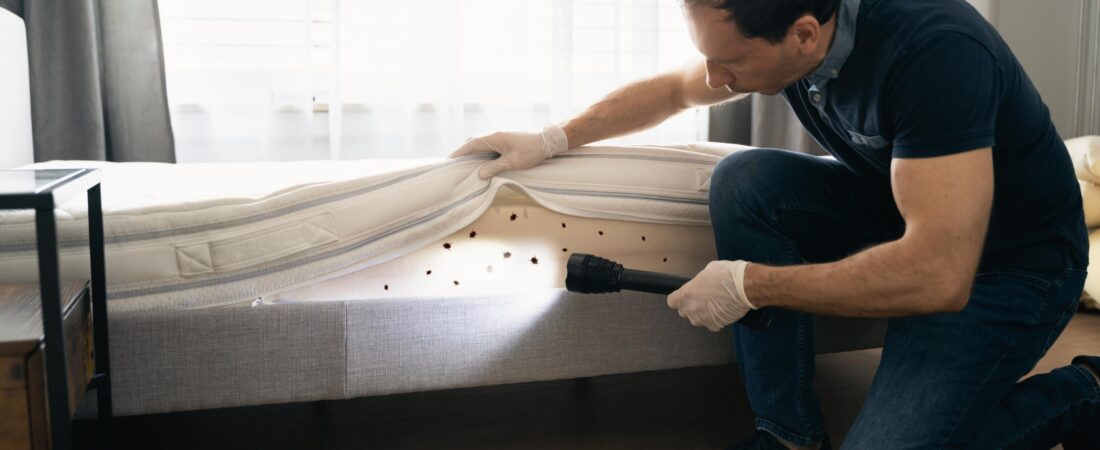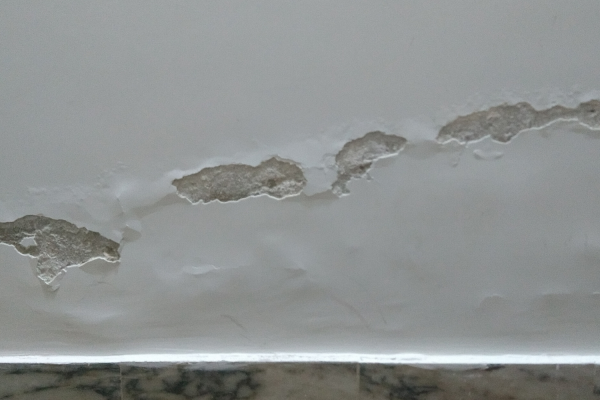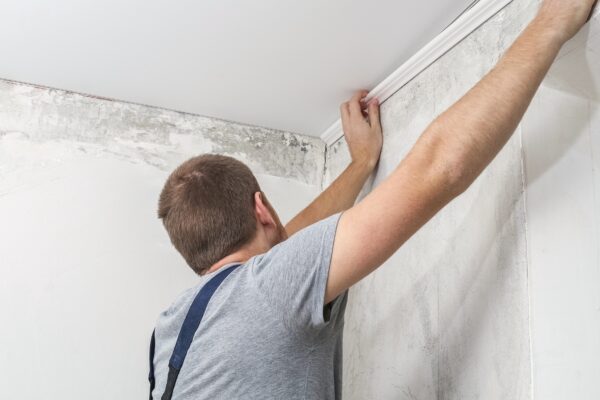If a bed bug infestation occurs, it needs sorting out – but whose responsibility is it to deal with it and foot the bill?
Bed bugs are what we call ‘nuisance pests,’ meaning they may not spread diseases, but they sure are a pain to deal with and get rid of.
They’re tiny, only 5 to 7 millimetres long, and can sneak into a home unnoticed… until it’s too late.
Here’s what to do if your tenants report a bed bug infestation and how you can help them prevent it from happening in the first place.
- Is it the landlord’s responsibility to deal with bed bugs?
- When is the tenant responsible for getting rid of bed bugs?
- What’s the best way to get rid of bed bugs?
- How can landlords help tenants prevent an infestation?
Fill your vacancies effortlessly and find the perfect tenants in no time.
List Your PropertyIs it the landlord’s responsibility to deal with bed bugs?
When a tenant discovers any problem, including bed bug infestation, their first instinct is usually to report it to their landlord. This is when the question of who’s actually responsible for getting rid of the bed bugs often arises.
Ultimately, it’s the landlord’s job to make sure the property is suitable for the tenant to live in.
If a landlord rents out a property that’s already infested with bed bugs or any other pests, it’s entirely reasonable for the tenant to ask the landlord to take care of the issue and get rid of the bugs before they move in.
In addition, it’s the landlord’s responsibility to remove any pests that are getting in because of issues with the property, like missing roof tiles, broken vents, or leaking pipes.

This is usually easier to prove in cases of bigger pests like rats, whose entry points can often be easily traced.
In situations where the landlord bears responsibility, they should quickly address the problem by making essential repairs and scheduling a pest control visit.
If the landlord fails to resolve the issue, tenants have the option to seek additional help from their local council.
When is the tenant responsible for getting rid of bed bugs?
If a tenant has been living in a property for a while, it’s possible they brought in the bed bugs themselves, maybe accidentally through their luggage or with a visitor.
In this case, it’s up to the tenant to pay for pest control and removal.
Either way, the tenant should let the landlord know as soon as possible to figure out who will handle the problem and to keep in contact about how to get rid of them.
You might also be interested in…
- All You Need to Know About Right to Rent Checks
- Guide to the Renters’ Rights Bill for Landlords 2025
- What Are the EPC Requirements for Landlords?
- Renting to Students: Guarantors, Advance Payments, HMO licence and more
- Holding Deposit, Tenancy Deposit, Rental Fees: Everything You Need to Know
What’s the best way to get rid of bed bugs?
Unfortunately, bed bugs are notoriously hard to get rid of because they can be hard to find and may be resistant to some insecticides.
While there are some DIY techniques you can try, they might not completely wipe out the bed bug problem.
Here are a few things you can try:
- Wash infested bedding and clothes in hot water (60°C) and dry them on high heat for at least 30 minutes
- Seal infested clothing and bedding in a plastic bag and place it in the freezer for three or four days
- Thoroughly vacuum all areas where you suspect bed bug activity, paying extra attention to the edges of the mattress and spots under and around the bed
Although these DIY methods could provide a temporary fix for bed bugs, it’s likely that you’ll need professional help to fully get rid of them, especially in the case of a widespread infestation.
Enjoy hassle-free rent collection and secure payments for your properties.
Find Out MoreHow can landlords help tenants prevent an infestation?
It’s always a good idea to keep communication open and consistent with tenants about ways to stay safe and avoid various issues, including bed bugs.
Here are some tips to share with your tenants:
- Tip out the vacuum quickly after vacuuming as bed bugs can live in the dust and even escape
- Avoid keeping clutter around the bed
- Inspect all secondhand furniture thoroughly before bringing it into the property
- Avoid bringing in clothes or luggage after travelling to places known to have bed bugs
Last but not least, it’s always good to check in with your tenants during periods of increased bed bug complaints in the area.



